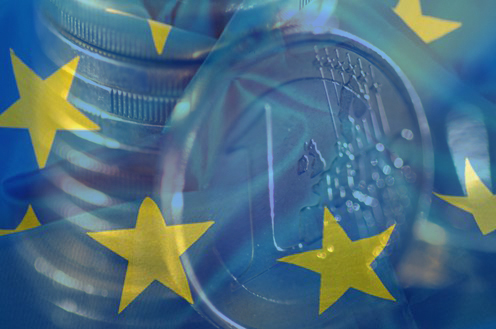Signing of SME Initiative Agreements
Spanish small- and medium-sized enterprises to benefit from loans guaranteed by European Investment Bank
News - 2015.1.26
The European Commissioner for Internal Market, Industry, Entrepreneurship and SMEs, Elżbieta Bieńkowska, and the State Secretary for Budgets and Expenditure from the Ministry for the Treasury and Public Administration Services, Marta Fernández Currás, the Vice-President of the European Investment Bank (EIB), Román Escolano, and the Executive Director of the European Investment Fund (EIF), Pierre Luigi Gilibert, signed two agreements on Monday, under which provisions are made for the launch of the so-called SME Initiative to mobilise approximately four billion euros in financing for companies. The event took place in Madrid and was also attended by representatives from the European Commission and the Spanish regional governments.
The signing of these agreements was one of the main objectives for Spain when investing in the EU Structural and Investment Funds under the new financial framework 2014-2020 in terms of express support for those small- and medium-sized enterprises that could be experiencing difficulties in accessing a loan. The IEE Funds, which in Spain amount to 38 billion euros, will be invested in those areas with the greatest impact on economic growth and job creation while also fostering increased respect for environmental issues.
It should be noted that the European Commission and the EIB put forward the so-called "SME Financing Initiative" in July 2013 with a view to implementing a new type of financial instrument capable of responding to the conclusions reached by the European Council on economic financing requirements in Europe. The proposal, embodied in Article 39 of Regulation 1303/2013, is aimed at creating a knock-on effect through the use of resources taken from the ERDF funds, other EU funds (COSME and HORIZON 2020) and a contribution from the EIB.
The article provides for the creation of an Operational Programme, and the signing of a Financing Agreement between the State and the EIB-EIF and an "Intercreditor Agreement" between the EU, EIB, EIF and the State in which it will be necessary to explain how the guarantee mechanism will operate.
Hence, the "SME Initiative" Operational Programme signed on Monday reflects Spain's commitment to small- and medium-sized enterprises, will provide guarantees to financial institutions for up to 80% of their loan portfolios and will be managed by the European Investment Bank group.
Regional government involvement
The result is a mostly innovative instrument and Spain is the first European Union country where it will be launched. It will be subsequently expanded to other countries, which will be watching what happens in Spain very closely. Similarly, this initiative represents an advance on the portion the Juncker Plan will dedicate to European SMEs, which will still take a few months to be fully defined.
It should be noted that the regional governments in Spain have been fully involved in this initiative by contributing ERDF resources from their own respective regional Operational Programmes. Between them, the regional governments and the central government of Spain have allocated 800 million euros from the ERDF and the total amount of loans to be made available to SMEs will stand at approximately 4 billion euros over the next three years. It is expected that over 32,000 companies throughout Spain will benefit from this initiative, of which at least 2,700 will be new companies.
Similarly, the initiative will create 6,400 new jobs and - considering that the average number of employees per Spanish SME is approximately four - the expectation is that it will also help consolidate employment for the over 120,000 people currently employed by those SMEs to benefit from this initiative.
After signing the agreements, the State Secretary for Budgets and Expenditure - whose department is responsible for managing the Structural Funds - said that the amounts coming from Europe will be invested in those areas with the greatest potential for economic growth and, by extension, job creation. She stressed that almost six billion euros of subsidies will be invested in fostering SME competitiveness.
"We are fully aware that SMEs have been hit hard by the crisis and are, in turn, an essential part of the economic recovery and job creation. To that end, the IEE Funds will target significant resources at supporting entrepreneurship, internationalisation and access to credit, thereby decisively easing the credit crunch in the private sector", she said.
Financing
The Financing Agreement regulates such aspects as the duties and obligations of the European Investment Bank, including remuneration, as well as the minimum leveraging level, the schedule of payments, terms applicable to the new debt financing, the provisions on activities not subject to aid and exclusion criteria.
Once the various agreements are signed, the EIB will issue a public call for proposals to financial entities with the terms and conditions for taking part in the initiative. The financial entities and banks will present their offers in response to this call for proposals. Guarantees will be provided to cover up to 80% of the amount of the new loans. The average loan amount will be approximately 100,000 euros, to be paid back over a period between 2 and 12 years.





